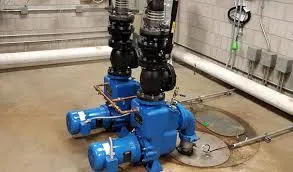Pashto
- Afrikaans
- Albanian
- Amharic
- Arabic
- Armenian
- Azerbaijani
- Basque
- Belarusian
- Bengali
- Bosnian
- Bulgarian
- Catalan
- Cebuano
- Corsican
- Croatian
- Czech
- Danish
- Dutch
- English
- Esperanto
- Estonian
- Finnish
- French
- Frisian
- Galician
- Georgian
- German
- Greek
- Gujarati
- Haitian Creole
- hausa
- hawaiian
- Hebrew
- Hindi
- Miao
- Hungarian
- Icelandic
- igbo
- Indonesian
- irish
- Italian
- Japanese
- Javanese
- Kannada
- kazakh
- Khmer
- Rwandese
- Korean
- Kurdish
- Kyrgyz
- Lao
- Latin
- Latvian
- Lithuanian
- Luxembourgish
- Macedonian
- Malgashi
- Malay
- Malayalam
- Maltese
- Maori
- Marathi
- Mongolian
- Myanmar
- Nepali
- Norwegian
- Norwegian
- Occitan
- Pashto
- Persian
- Polish
- Portuguese
- Punjabi
- Romanian
- Russian
- Samoan
- Scottish Gaelic
- Serbian
- Sesotho
- Shona
- Sindhi
- Sinhala
- Slovak
- Slovenian
- Somali
- Spanish
- Sundanese
- Swahili
- Swedish
- Tagalog
- Tajik
- Tamil
- Tatar
- Telugu
- Thai
- Turkish
- Turkmen
- Ukrainian
- Urdu
- Uighur
- Uzbek
- Vietnamese
- Welsh
- Bantu
- Yiddish
- Yoruba
- Zulu
Telephone: +86 13120555503
Email: frank@cypump.com
Aug . 17, 2024 12:29 Back to list
Understanding the Basics and Applications of Mixed Flow Pumps in Fluid Dynamics
Understanding Mixed Flow Pumps
Mixed flow pumps are a type of hydraulic machinery that combines characteristics of both centrifugal and axial flow pumps. They play a crucial role in various applications, particularly in scenarios where a moderate to high flow rate is needed combined with a moderate head. This article will delve into the operating principles, design features, advantages, and applications of mixed flow pumps.
Operating Principles
Mixed flow pumps operate by employing a unique mechanism that allows fluid to enter the pump axially and exit radially. As the fluid enters the impeller, it is subjected to centrifugal force that converts mechanical energy into kinetic energy. This kinetic energy is then transformed into pressure energy as the fluid moves through the volute or diffuser. The mixed flow design allows for an optimal balance between flow rate and pressure, making it suitable for various applications requiring substantial flow with less energy consumption.
Design Features
Typically, mixed flow pumps feature a semi-open or closed impeller, a volute casing, and guide vanes that help streamline the fluid flow. The impeller blades are angled in such a way that they direct the fluid both outward and upward, achieving a mixed flow pattern. The design can vary, with some models emphasizing more axial flow characteristics and others residual centrifugal properties. This flexibility in design allows engineers to customize pumps based on specific requirements of head and flow.
Advantages of Mixed Flow Pumps
what is mixed flow pump

One of the significant advantages of mixed flow pumps is their ability to handle large volumes of fluid at moderate pressure levels. They are generally more efficient than centrifugal pumps at lower flow rates and can provide better performance in systems requiring a range of operational conditions. Furthermore, mixed flow pumps tend to be less susceptible to cavitation, which is a common issue that can damage other types of pumps.
Another key advantage is their ability to handle fluids with varying characteristics, including those that contain solids or have high viscosity. This adaptable nature makes mixed flow pumps particularly useful in wastewater treatment facilities, agricultural irrigation, and industrial processes.
Applications
Due to their versatility and efficiency, mixed flow pumps find applications across a wide range of industries. In the municipal sector, they are often utilized for water supply systems, stormwater management, and sewage treatment. In the agricultural domain, mixed flow pumps are crucial in irrigation systems, ensuring reliable water delivery for crops. Additionally, their application extends to industrial processes where fluids need to be moved effectively and efficiently, such as in chemical manufacturing and oil refineries.
Another significant application of mixed flow pumps is in cooling water systems for power plants and other industrial processes, where the effective movement of large volumes of water is essential for maintaining operational efficiency and safety.
Conclusion
In summary, mixed flow pumps are an essential part of numerous applications requiring efficient and effective fluid management. Their unique design allows for a balance of flow and pressure, making them versatile in handling various types of fluids under different operating conditions. As industries continue to seek out efficient and reliable pumping solutions, mixed flow pumps are likely to remain a key component in advancing hydraulic technology. Understanding their principles and applications can aid in optimizing their usage and enhancing overall system performance in any water management or processing task.
-
ISG Series Pipeline Pump - Chi Yuan Pumps | Energy Efficiency&Compact Design
NewsAug.03,2025
-
ISG Series Vertical Pipeline Pump - Chi Yuan Pumps Co., LTD.|High Efficiency, Low Noise, Durable
NewsAug.02,2025
-
ISG Series Vertical Pipeline Pump - Chi Yuan Pumps | High Efficiency, Low Noise
NewsAug.02,2025
-
ISG Series Vertical Pipeline Pump- Chi Yuan Pumps Co., LTD.|High Efficiency&Compact Design
NewsAug.02,2025
-
Heavy-Duty Mining Sludge Pumps - Wear-Resistant Slurry Handling
NewsAug.02,2025
-
Horizontal Split Case Pump with GPT-4 Turbo | High Efficiency
NewsAug.01,2025










